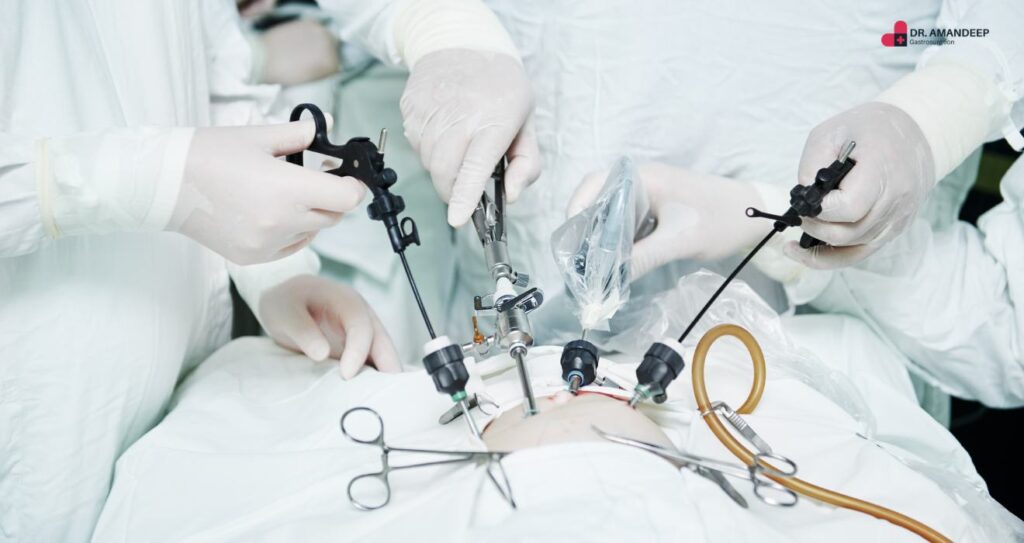
Surgical advancements have provided patients with more treatment options than ever before. One of the biggest decisions when undergoing a procedure is choosing between laparoscopic surgery and open surgery. Both methods are effective, but they differ in technique, recovery time, and potential risks. If you or a loved one is preparing for surgery, understanding the differences can help you make an informed decision.
What is Laparoscopic Surgery?
Laparoscopic surgery, also known as minimally invasive surgery (MIS) or keyhole surgery, involves making small incisions through which a tiny camera (laparoscope) and specialized instruments are inserted. The surgeon views a high-definition monitor to perform the procedure with precision.
Advantages of Laparoscopic Surgery
✔️ Smaller Incisions: Reduces scarring and cosmetic concerns
✔️ Faster Recovery: Shorter hospital stay and quicker return to normal activities
✔️ Less Pain: Minimizes post-operative discomfort compared to open surgery
✔️ Lower Risk of Infection: Small incisions mean a reduced risk of complications
✔️ Minimal Blood Loss: Less bleeding and fewer transfusions needed
Disadvantages of Laparoscopic Surgery
❌ Not Suitable for All Cases: Some complex surgeries still require open techniques
❌ Longer Operating Time: The precision involved may take more time than open surgery
❌ Requires Specialized Skills: Surgeons need advanced training in laparoscopic techniques
What is Open Surgery?
Open surgery is the traditional surgical method where a large incision is made to directly access the affected area. This approach is often necessary for complex procedures or emergencies where a detailed view of internal organs is required.
Advantages of Open Surgery
✔️ More Accessible for Complex Cases: Better for large tumor removal or emergency surgeries
✔️ Suitable for Patients with Prior Surgeries: Scar tissue from previous procedures can make laparoscopic surgery challenging
✔️ Effective for Large-Sized Growths: Some conditions require direct access for complete removal
Disadvantages of Open Surgery
❌ Longer Recovery Time: Hospital stay and post-surgery healing take longer
❌ Higher Risk of Infection: Larger wounds increase the chance of infections
❌ More Pain and Scarring: Due to bigger incisions and tissue trauma
When is Laparoscopic Surgery Recommended?
Laparoscopic surgery is preferred when the procedure is not highly complicated, and a minimally invasive approach can be beneficial. Some common surgeries performed laparoscopically include:
✔️ Gallbladder Removal (Cholecystectomy)
✔️ Appendectomy (Appendix Removal)
✔️ Hernia Repair
✔️ Hysterectomy (Uterus Removal)
✔️ Gastrointestinal Surgeries (Colorectal, Bariatric Surgeries, etc.)
✔️ Urological Procedures (Kidney Stone Removal, Prostate Surgery, etc.)
When is Open Surgery Necessary?
In some cases, open surgery remains the gold standard because it provides better access to internal organs. Open surgery is recommended for:
✔️ Large Tumor Removal (Cancer or Fibroids)
✔️ Emergency Surgeries (Severe Trauma or Internal Bleeding)
✔️ Complex Gastrointestinal Surgeries (Severe Obstructions or Perforations)
✔️ Reconstructive Surgeries (Organ Transplants, Major Tissue Repairs, etc.)
✔️ Multiple Prior Surgeries (Scar Tissue from Previous Surgeries May Prevent Laparoscopic Access)
Recovery Time: Laparoscopic vs. Open Surgery
| Factor | Laparoscopic Surgery | Open Surgery |
|---|---|---|
| Incision Size | Small (0.5 – 1 cm) | Large (5 – 10 cm) |
| Hospital Stay | 1-2 days | 5-7 days |
| Recovery Time | 1-2 weeks | 4-6 weeks |
| Pain Level | Mild to Moderate | Moderate to Severe |
| Scarring | Minimal | More noticeable |
| Infection Risk | Low | Higher |
How to Decide Which Surgery is Right for You?
The choice between laparoscopic and open surgery depends on several factors, including:
🔹 Severity of the Condition: If the surgery is minor and can be managed with minimally invasive techniques, laparoscopic surgery is preferred.
🔹 Patient’s Medical History: If you have had previous surgeries or scar tissue, open surgery may be necessary.
🔹 Surgeon’s Recommendation: A skilled gastro surgeon in Mohali or general surgeon will assess your condition and suggest the best approach.
🔹 Personal Preference: Some patients prefer a quicker recovery and less scarring, making laparoscopic surgery more appealing.
Final Thoughts
Both laparoscopic and open surgery have their own advantages and limitations. Laparoscopic surgery offers a minimally invasive, faster recovery option, while open surgery remains essential for complex cases. Consulting an experienced surgeon at Smart Clinics in Mohali can help determine the best option for your condition.
If you are looking for a top gastro surgeon in Mohali or need expert advice on surgical procedures, book an appointment at Smart Clinics today! 💙





